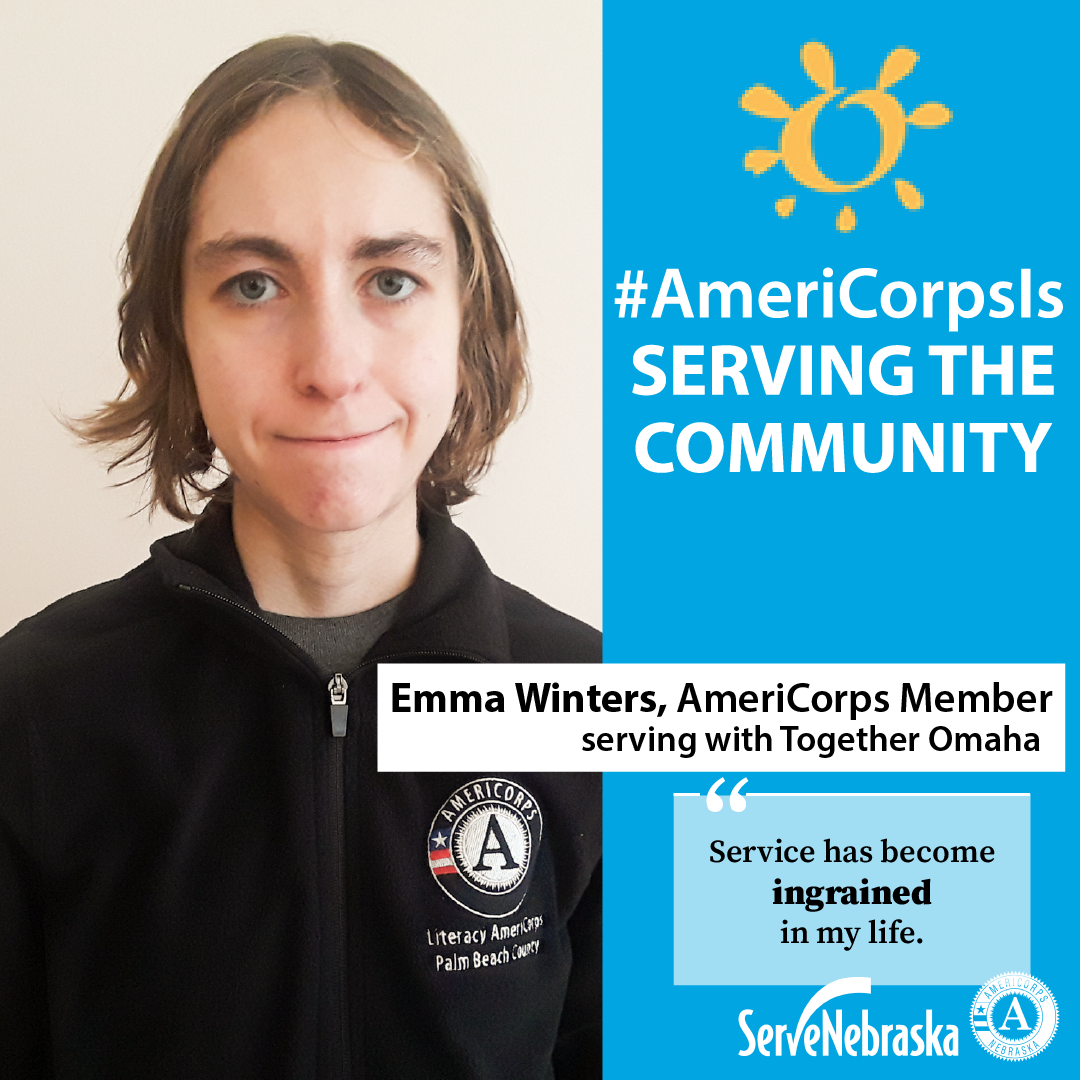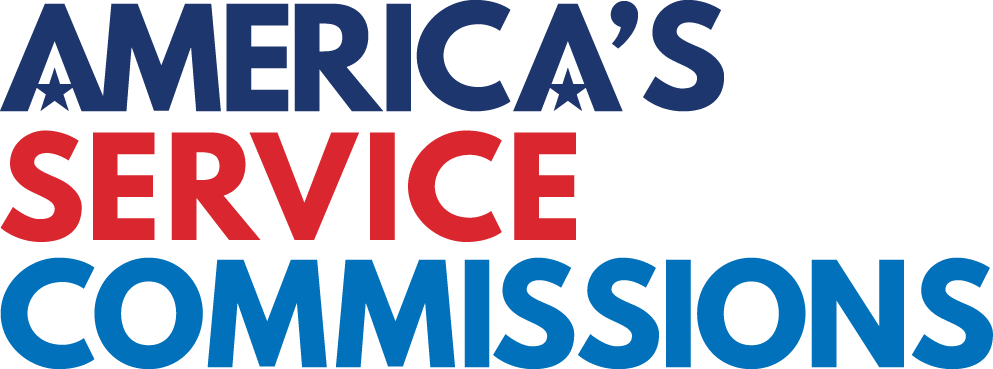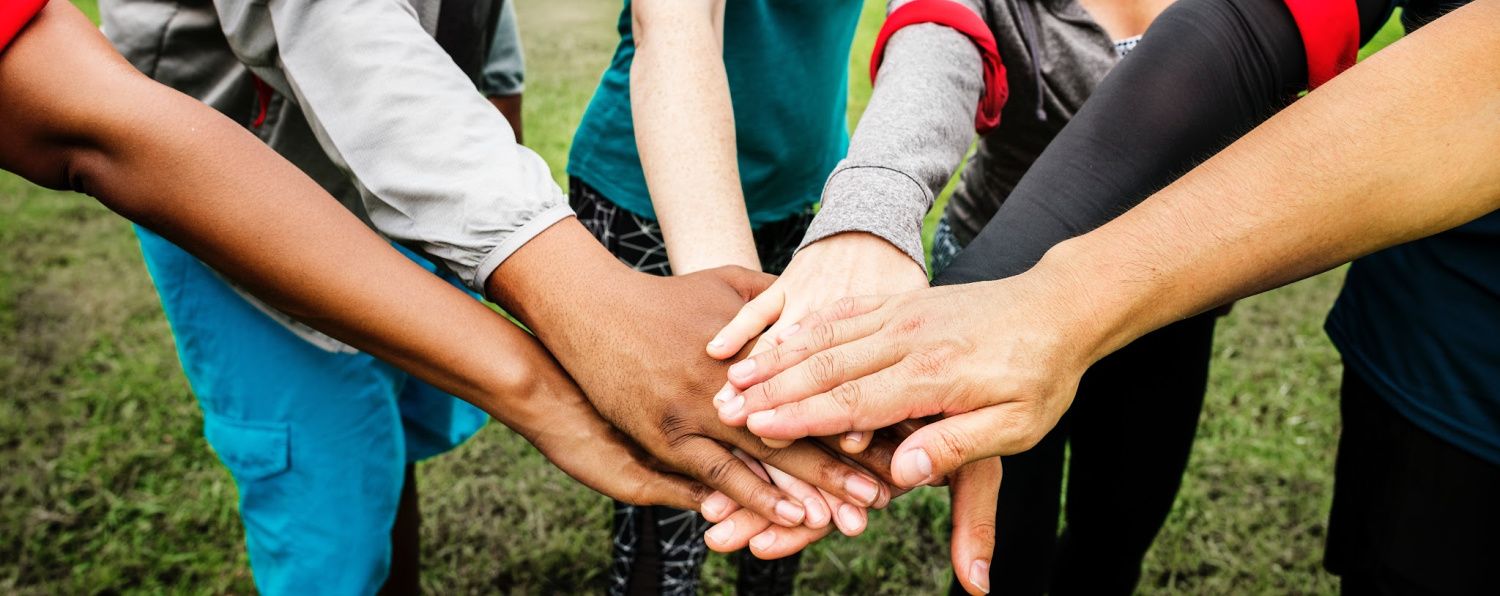
Emma Winters is originally from Omaha, Nebraska, and is currently serving her third term as an AmeriCorps member! She currently serves with Together Omaha at their Whispering Roots service site, but previously she served as an AmeriCorps member in Florida as a literacy tutor and in New Jersey with FoodCorps.
At UNL she studied animal science and minored in agribusiness. AmeriCorps service instilled in her a passion for service and she’s excited to be able to serve those in need!
ServeNebraska: In one or two words, what is AmeriCorps to you?
Emma Winters: Serving the community. For me, it's extremely important to give back to the community and help where we can. Not everybody is in a position of privilege, a lot of people aren't, and I also feel like a lot of people don't get the help that they need. Especially not through the lens of the community, some people are given help, without people really understanding what their need actually is. And I think AmeriCorps does a really good job of helping actually put people into the community who actually can figure out what's going on, really connect with people, build close relationships, and really help from the ground and make some lasting changes.
SN: How did you hear about AmeriCorps for the first time, when you were going to Florida?
EW: I started by looking at Peace Corps. I'd heard about Peace Corps, we have Peace Corps representatives come to UNL and but I wasn't too sure about it, because that was a really big commitment of 2 years in another country. My dad said something like, “Oh, I heard about this AmeriCorps program. When I was younger. I wonder if it's still around.” I ended up looking it up, and it sounded pretty nice.
SN: Why did you ultimately decide to serve in AmeriCorps?
EW: Basically, it was a way to serve the community because I had done some service practice before, I volunteered in high school. I got really into it and really enjoyed it. Although I got into college, I just didn't have as much time to volunteer and so when I thought about AmeriCorps and being able to actually give back and do something just to help people for a while and not worry about having to do anything else. It just sounded like a great opportunity!
SN: What volunteering did you do in high school?
EW: Most of the volunteering I did was with an organization called HETRA. Then also I certified my dog as a therapy dog and we went a few different places together. That was mainly what I did in high school.
SN: What have you learned as an AmeriCorps member so far?
EW: A lot of different things over the past few years. Kind of how to work with others is one thing. Building relationships, really kind of inserting oneself into the community and really using those relationships that you build to help make lasting changes. That's one of the biggest things. A lot of things about professionalism in the workplace. Then other things too like, before I started serving at Whispering Roots, I knew nothing about aquaponics or planting or anything like that. So I've learned a lot about those types of things. How to teach others, because basically in all the AmeriCorps positions I've had to do in some form of teaching. So I've definitely learned more about teaching, classroom management, working with kids, working with adults.
SN: In your opinion, who benefits most from AmeriCorps programs?
EW: I think everybody does. I think the organizations do, I think the AmeriCorps members do, I think the community benefits. I don't know that one benefits over the other, I think it's kind of a mutual relationship.
SN: What is your average day like as an AmeriCorps member serving at Whispering Roots?
EW: It really changes from day to day for us right now, because everything's so crazy with the pandemic and everything. So some days, I'll go into the office and we're making videos to post on our YouTube channel. I do things around the office like working on the video, I might work with some plants, might plant some like tomatoes, or lettuce or something on some days. Some other days are pretty different. I will start early in the morning, jump on straight track, go to our food distribution site, load some pallets on our truck. And then we'll basically drive around town most of the day delivering food.
We also have some worms right now. So today I went in and I cleaned up the worm tank a little bit.
SN: What do you have worms for?
EW: We have a couple different types of worms right now. So we have super worms and we have mealworms. Super worms, like bigger worms that actually eat styrofoam. They're pretty cool. So they got them so you can show kids about recycling and having this creature that can eat something that takes forever to break down. Mealworms are just kind of easy worms to have around and show kids the lifecycle of the worm and everything because they’re pretty easy to breed and they don't die as easily as some other worms.
SN: So have you come up with any strategies for making the material or the lessons more engaging to students in a virtual way?
EW: Yeah, so I make YouTube videos that I post and try to make them things that kids or people can do at home, fun activities like how to regrow an avocado tree from an avocado seed, or like today, I posted a video on like how to make mini pots to start seeds using empty toilet paper rolls. Then when it comes to working directly with schools, I've worked with teachers to kind of make lessons that they can do with their kids. So like I can teach the basics, then they can do the actual activity.
With the kindergarten classes I’ve taught about what plants need to grow and then how to plant an actual seed, then they'll plant seeds in those mini toilet paper roll pots that they can make. Or some other classes, we did some lessons with some fourth graders on different regions all around the US. For one of the regions, we did experiments with cranberries, since cranberries can grow really well in the Northeast, so they changed the color of like cranberry juice by adding acids and bases. It's not quite the same as actually being able to be in the classroom, but you make it work.
SN: What is your favorite part about serving as an AmeriCorps member there at Whispering Roots?
EW: Basically being able to be involved in the community being able to work with others. Yeah, I just love being able to interact with other people and either talking with them during food distributions, through videos, basically just connecting with others!
SN: Do you have a favorite memory of your service so far?
EW: One day when this one family brought like a little red wagon and were letting people borrow it to carry their food boxes back home. That was pretty cool to see the whole community coming together.
SN: What would you change about your service if you could start over?
EW: I'd probably just take more initiative when I first started. When I first started, I was just only doing what people told me to do, because I wasn't really sure, I didn’t want to put myself out there too much. So now if I could redo it, I would want to go back and kind of take charge more and kind of pave my own path and take more initiative.
SN: Has AmeriCorps changed you at all? And if so, how?
EW: I've definitely become more involved in the community and more community minded. And with all the things I've learned, it's definitely made me want to do more to work with different communities. Before I joined AmeriCorps, I didn't know what I want to do with my life or my career. And now I know that I want to do something to basically help others, like underserved groups in the community, whether it's immigrants or kids who just don't have the same opportunities. So definitely, that aspect of service has become ingrained in my life. I don't think I could ever do anything that doesn't involve some sort of service.
SN: What would you say to someone who is considering AmeriCorps service?
EW: I'd say if you're thinking about it, then do it. Because if you're considering it, you're probably the type of person who would actually end up really benefiting from it and enjoying it. Because I think people who wouldn’t consider it in the first place are the people who wouldn't well in it, but the people who are thinking about it are the people who would probably really enjoy it because they're the people who want to make a difference.
Interested in seeing videos on how to grow and cook? Check out Whispering Roots TV to hear Emma’s lessons! Whispering Roots TV
*Answers edited for length and clarity.


